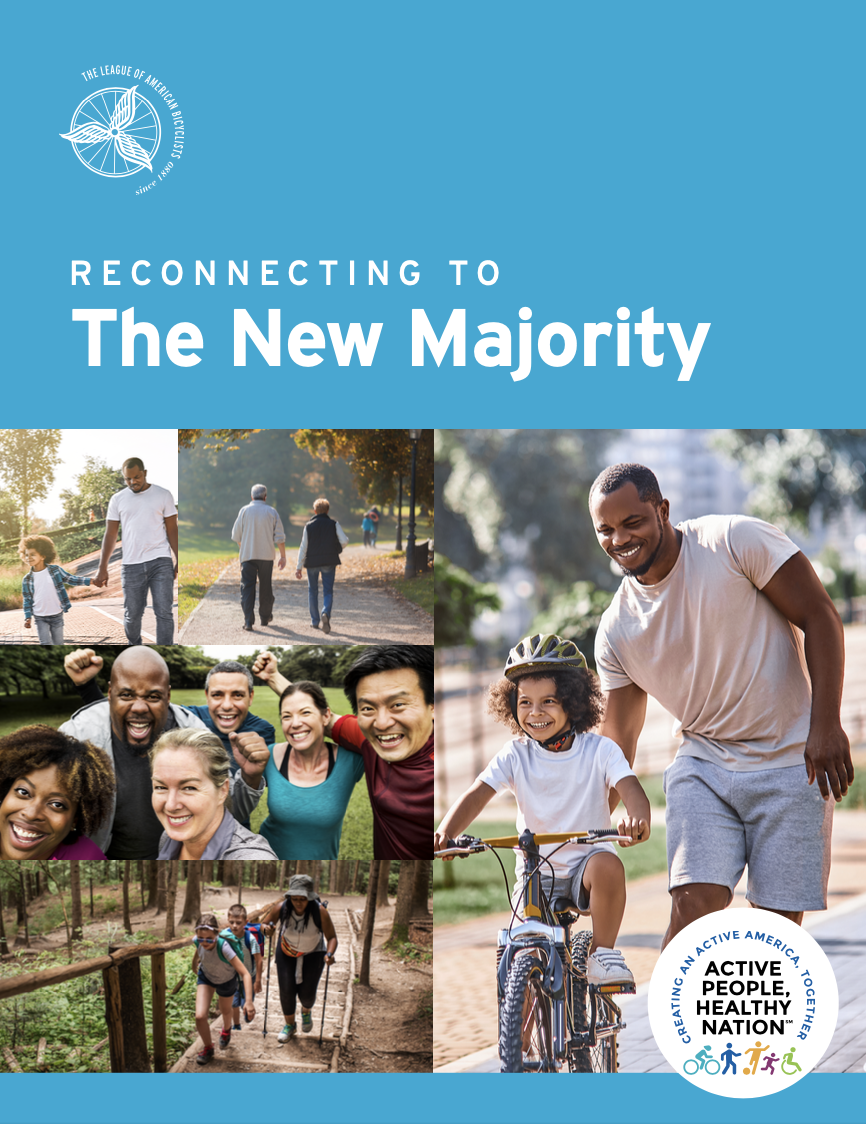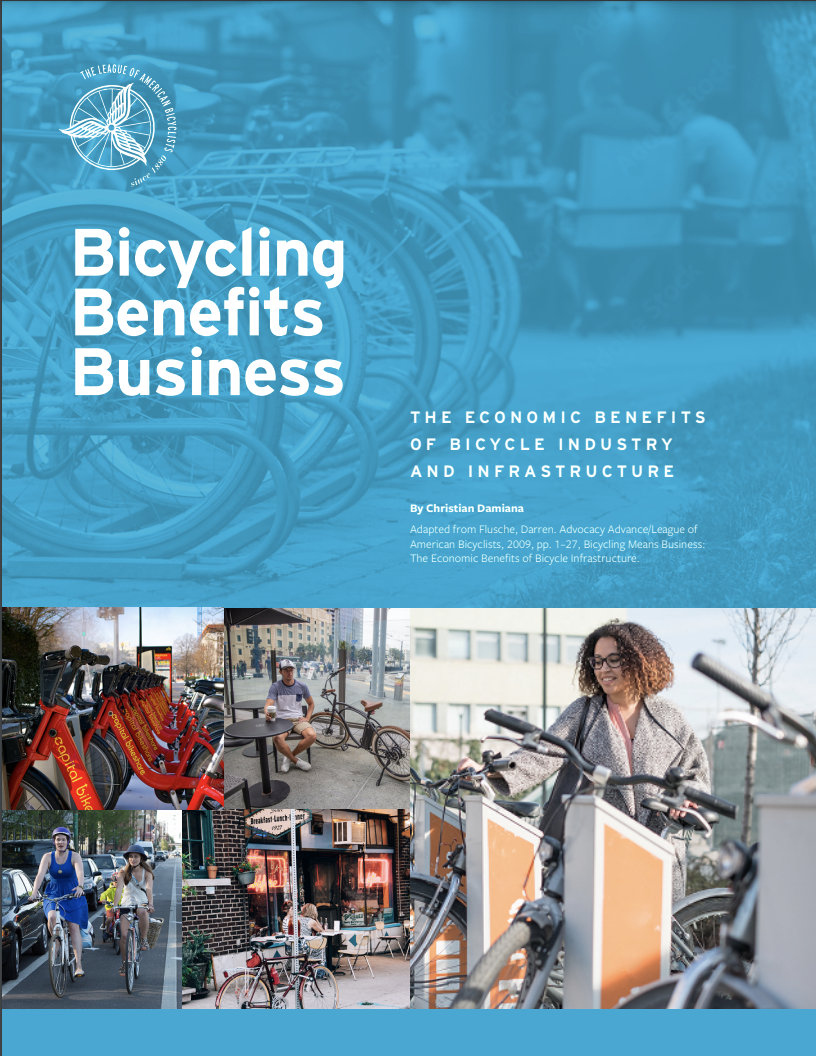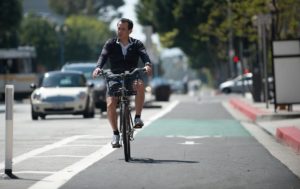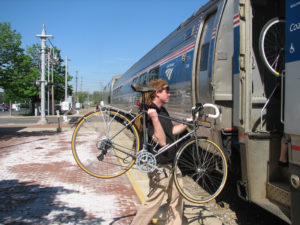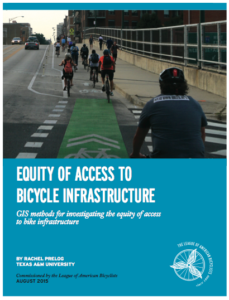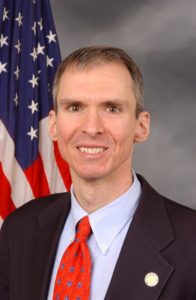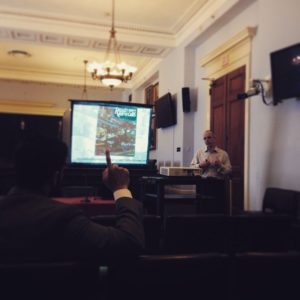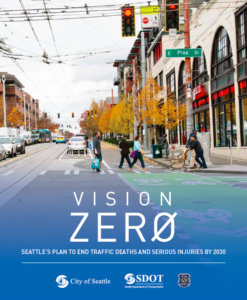Reports and Resources
Convincing decision makers to prioritize people who bike and walk requires two things: great stories and great data. Our reports offer important, easy to understand case studies for both.
As the premier resource for advocates and policy makers on how to make biking better, the League has produced scores of reports and fact sheets over the years to make the case for building a Bicycle Friendly America for everyone.
In addition to our most recent reports, the League also hosts archives and resources created over the years through our work and that of our partners.
Can't find a report you're searching for? Contact us.
Recent Reports
Recent Posts from our Research Team
New Data: Bike Commuting Growing Steadily
This morning, the U.S. Census Bureau released the American Community Survey (ACS), revealing new data on bicycle commuting in the United States. According to the ACS, 0.62% of commutes to work were made by bicycle in 2014, which represents a modest 0.5% increase from 2013. In total, the Census Bureau estimates that there were 904,463 bicycle commuters across the country in 2014. Since 2000, ACS data shows a 62% increase in bicycle commuting.
Amtrak Expands Roll-On Service
Starting today, Amtrak’s Capitol Limited Line, from Washington, D.C. through Pittsburgh and ending in Chicago, will offer bicycle roll-on bicycle service. Congratulations to Adventure Cycling Association and Amtrak for making this happen! Amtrak’s timing is perfect, too. Earlier this year the League worked with Rep. Dan Lipinski (D-IL), and Sen. Joe Manchin (D-WV) to successfully incorporate language into the Amtrak reauthorization bill, pushing the train service to standardize roll-on accessibility across the country. While the bill hasn’t yet passed the full Congress, we expect it to pass by the end of the year.
New Report: Equity of Access to Bicycle Infrastructure
Equitable transportation is more than a buzzword. The effort to make transportation accessible and safe for Americans from all socioeconomic and racial backgrounds has taken root in grassroots advocacy organizations, national foundations and even in the U.S. Congress. The benefits of transportation investments are not distributed equally among communities, as some social groups have not reaped the rewards of developed transportation infrastructure. While the discussion of transportation equity has largely focused on accessibility to transit and the provision of auto-dominated infrastructure, a growing number of advocates
How will new technology affect bike safety? Congress wants to know
New technology is coming for our roads, but what does that mean for you? It is hard to know what to think of self-driving cars, connected cars, and new safety technologies that augment the abilities of vehicle drivers. Last year, we asked on social media whether automated cars will increase or decrease safety for people who bike and walk – and most people said they didn’t have enough information to know. Thankfully, Rep. Dan Lipinski (D-IL) has introduced the “Future Transportation Research and Innovation for Prosperity Act” or Future TRIP Act. The Future TRIP Act directs the Secretary of Transportation to establish an Automated and Connected Vehicle Research Initiative.
The History of Bikes Is the History of Cars
On Thursday here in Washington, D.C., League staff joined U.K.-based author and historian Carlton Reid at a Congressional Bike Caucus meeting where he presented information from his new book, The Roads Were Not Built for Cars. His book tells the fascinating history of bicycling in the United States and the U.K. and of the very interconnected story of bicycles and motor vehicles. Read through our live-tweets from his presentation below to learn more! Fun fact: Car manufacturer GMC used to be “GBC” — one guess what the B stood for…
Momentum for Vision Zero
The Mayor of Seattle knows firsthand the trauma of unsafe streets. When Ed Murray was 14 years old, he was struck by a car while riding his bicycle on his paper route. The result: An extended hospital stay and six months of recovery before he could walk again. Earlier this year, he set a new course for his city to make sure that no child will have to suffer like he did. “We believe we can have a city where no cyclist or pedestrian is hit or killed,” Murray told the Youth Bike Summit in February.
